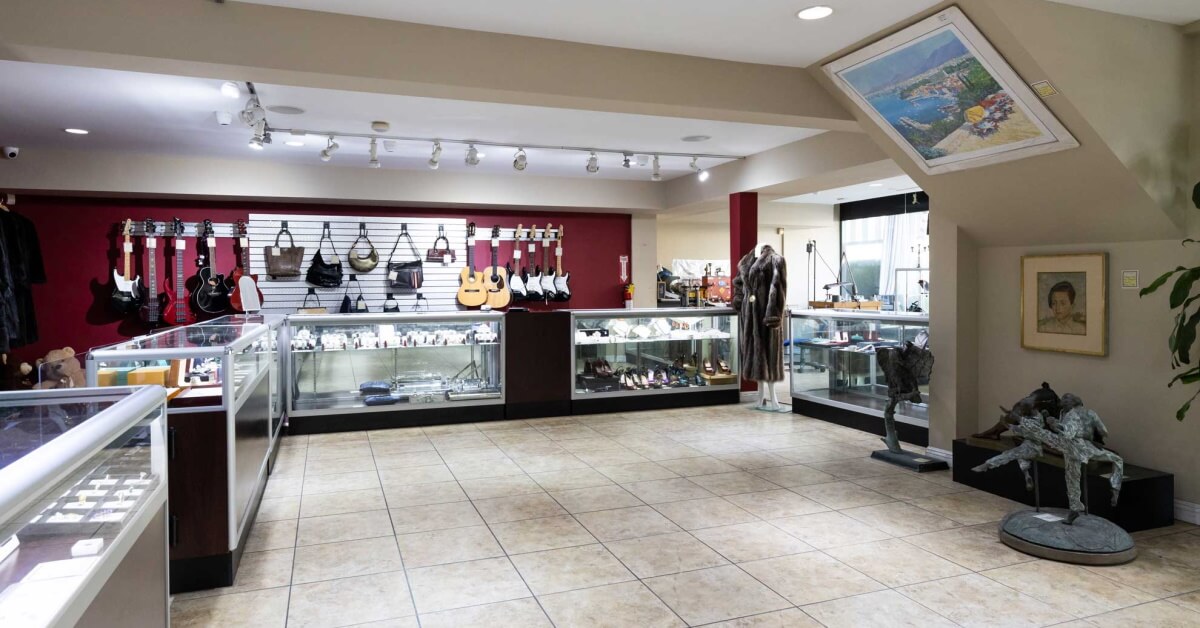Table of Contents
Introduction
Ever wondered how pawn shops work? Maybe you’ve seen them in movies or walked past one in your neighborhood and thought, “What’s the deal with these places?” Well, you’re in the right spot! Let’s dive into the fascinating world of pawn shops, where you can turn your valuables into quick cash or find hidden treasures at bargain prices. We’ll explore everything from the basics to the nitty-gritty details, making sure you’re well-informed whether you’re looking to pawn something or just curious about how it all works.
The Basics of Pawn Shops
What is a Pawn Shop?
At its core, a pawn shop is a business that offers secured loans to people, with personal property used as collateral. It’s a simple concept: you bring in something valuable, the pawnbroker assesses its worth, and if everything checks out, you walk away with cash. The item stays with the shop until you repay the loan. If you don’t repay How pawn shops work, the pawnbroker keeps the item and sells it to recoup their money.
History of Pawn Shops
Pawn shops have been around for centuries, dating back to ancient China and Greece. They’ve always served as a way for people to get quick access to cash without the need for banks or credit checks. Over time, the concept spread worldwide, becoming a staple in many communities. Today, pawn shops are regulated businesses, often family-owned, offering a variety of services beyond just pawning items.
How Pawn Shops Operate
The Loan Process
Bringing in an Item
The first step in pawning an item is pretty straightforward: you bring in something valuable. This could be anything from a gold ring to a fancy laptop. The key is that the item has to have enough value to be worth pawning.
Appraisal
Once you’ve brought in your item, the pawnbroker will appraise it. This involves examining the item to determine its condition and market value. For example, if you’re pawning a piece of jewelry, they might test the metal and check for authenticity of any gemstones. The appraisal process is crucial as it determines how much money you can get.
Loan Offer
Based on the appraisal, the pawnbroker will make you a loan offer. This is usually a percentage of the item’s value. If your item is worth $1,000, you might get offered a loan of $500. The offer takes into account the risk the pawnbroker is taking and the potential resale value if you don’t repay the loan.
Loan Terms
If you accept the offer, you’ll sign an agreement outlining the loan terms. This will include the interest rate, repayment period, and any other fees. Interest rates can be quite high, reflecting the short-term and high-risk nature of the loans. You’ll also receive a pawn ticket, which you’ll need to redeem your item.
Selling Items to a Pawn Shop
Immediate Cash Offers
If you don’t want to deal with the hassle of a loan, you can outright sell your items to a pawn shop. This process is similar to pawning but without the need for repayment. The pawnbroker will appraise your item and make a cash offer. Once you accept, the transaction is complete.
Negotiation Tips
When selling items to a pawn shop, negotiation is key. Do some research beforehand to understand the value of your item and be prepared to haggle. Pawnbrokers expect a bit of back-and-forth, so don’t be afraid to ask for a better offer.
Redemption Process
If you’ve pawned an item, the redemption process involves paying back the loan plus interest within the agreed period. Once you’ve repaid, you get your item back. If you can’t repay on time, many pawn shops offer extensions or renewals, but these come with additional fees.
Common Items in Pawn Shops
Jewelry and Precious Metals
Jewelry is one of the most commonly pawned items. Gold, silver, and platinum pieces, especially those with gemstones, hold significant value. They are easy to appraise and sell, making them a favorite for both pawnbrokers and customers.
Electronics and Gadgets
From smartphones to gaming consoles, electronics are also popular in pawn shops. These items tend to hold their value well and have a broad resale market. However, they must be in good working condition and include any necessary accessories.
Musical Instruments
Musical instruments, especially high-quality ones, are valuable assets in pawn shops. Guitars, violins, and keyboards often fetch good prices due to their high demand and enduring value.
Tools and Equipment
Power tools and other equipment are frequently pawned items. They are often valuable, durable, and in constant demand, making them a good option for quick cash.
Legal Aspects of Pawn Shops
Regulations and Licensing
Pawn shops are regulated at the state and local levels. They must have proper licensing to operate, which involves meeting certain standards and guidelines. Regulations ensure that pawn shops operate fairly and legally, protecting both the business and the consumer.
Consumer Protection Laws
Laws also protect consumers who use pawn shops. These include regulations on interest rates, loan terms, and the handling of stolen property. Pawnbrokers are required to report transactions to law enforcement to help track and recover stolen items.

